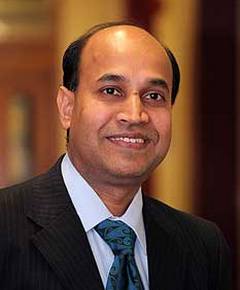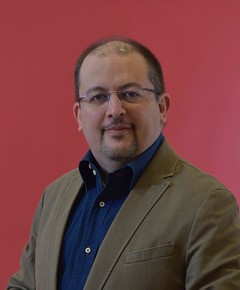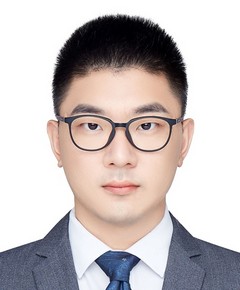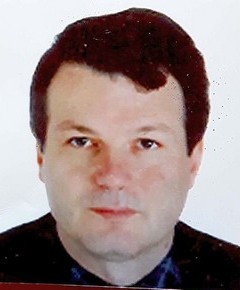CCCI 2022 Keynote Speakers

Subhas Chandra Mukhopadhyay, Macquarie Univ., Australia
IoT, Smart Home and Smart City: From Sensors to computing
Bio

Subhas holds a B.E.E. (gold medallist), M.E.E., Ph.D. (India) and Doctor of Engineering (Japan). He has over 32+ years of teaching, industrial and research experience.
Currently he is working as a Professor of Mechanical/Electronics Engineering, Macquarie University, Australia and is Discipline Leader of the Mechatronics Engineering Degree Programme. He is Director of International Engagement of School of Engineering. His fields of interest include Smart Sensors and sensing technology, instrumentation techniques, wireless sensors and network, IoT etc. He has supervised over 55 postgraduate students and over 150 Honours students. He has examined over 75 postgraduate theses.
He has published over 500 papers in different international journals and conference proceedings, written ten books and fifty two book chapters and edited eighteen conference proceedings. He has also edited thirty five books with Springer-Verlag and thirty journal special issues. He has organized over 20 international conferences as either General Chairs/co-chairs or Technical Programme Chair. He has delivered 415 presentations including keynote, invited, tutorial and special lectures.
He is a Fellow of IEEE (USA), a Fellow of IET (UK), a Fellow of IETE (India), a Topical Editor of IEEE Sensors journal, and an associate editor of IEEE Transactions on Instrumentation and Measurements, IEEE Review of Biomedical Engineering, IoP Measurement Science and Technology. He is a Distinguished Lecturer of the IEEE Sensors Council from 2017 to 2022. He was the Founding chair of IEEE IMS NSW chapter and is the Founding chair of IEEE NSW Sensors Council Chapter.
More details can be available at http://web.science.mq.edu.au/directory/listing/person.htm?id=smukhopa
https://scholar.google.com/citations?user=bpwXxYEAAAAJ&hl=en
Abstract
The advancements in electronics, embedded controllers, smart communicating devices as well as the progress towards a better informed, knowledge based society increase the demand for small size, affordable sensors that allow accurate and reliable data recording, processing, storing and communication. This led to the paradigm known as Internet of Things (IoT) in which Wireless Sensor Nodes are most important elements.
The seminar will present research activities on development of IoT based system towards managing our health, home and environment in a better way. The successful system needs a combined effort of sensing, communication, security and data informatics. Recent work on sensors for Smart city and water applications will be shared.
Fabrizio Granelli, Univ. of Trento, Italy
Towards the green edge
Bio

Fabrizio Granelli is Full Professor at the Dept. of Information Engineering and Computer Science (DISI) of the University of Trento (Italy). He received the «Laurea» (M.Sc.) and Ph.D. degree from the University of Genoa, Italy, in 1997 and 2001, respectively. He was visiting professor at the State University of Campinas (Brasil) and in 2016 he was visiting professor at the University of Tokyo (Japan). He was IEEE ComSoc Distinguished Lecturer for the period 2012-15 and 2021-22 (3 terms), ComSoc Director for Online Content in 2016-17, Delegate for Education at DISI in 2015-2017, IEEE ComSoc Director for Educational Services (2018-19) and IEEE ComSoc Director for Conference Development (2022-23).
Prof. Granelli was General Chair or TPC Chair of several prestigious IEEE conferences, such as IEEE Globecom, IEEE NFV-SDN, IEEE CAMAD, and chaired several symposia at IEEE ICC and Globecom. He is the Founding Chair of the Aerial Communication Emerging Technology Initiative of IEEE Communications Society and Chair of the IEEE P1954 Standard Working Group.
He is the author or co-author of more than 250 papers published in international journals, books, and conferences.
He is Associate Editor in Chief of IEEE Communications Surveys and Tutorials, and Senior Editor of the IEEE Transactions on Green Communications and Networking.
Abstract
In recent years, the network edge has attracted wide interest from the scientific and industrial community in communications. Indeed, implementing micro-services at the network edge seems to offer an additional and welcome degree of freedom in the delivery of modern services, allowing to reduce latency, and support high reliability, and location awareness. While the enthusiasm on the subject enabled the already implemented proofs-of-concept of this paradigm, further investigation is still required to better understand the feasibility and scalability of edge solutions, especially in terms of energy efficiency.
This keynote will briefly introduce the building blocks required to understand the concept of the network edge, including Software Defined Networking and Network Function Virtualization. Then, the ETSI Multi-Access Edge Computing standard will be introduced as the reference architecture for service deployment at the edge. Finally, energy-efficient networking and computing concepts and challenges will be analyzed for this interesting scenario.
Zhaolong Ning, Chongqing Univ. of Posts and Telecommunications, China
Edge Intelligence Driven Communication and Computing Resource Coordination
Bio

Zhaolong Ning received the PhD degree from Northeastern University, China in 2014. He was a research assistant with Kyushu University from 2013 to 2014, Japan, and a Hong Kong Scholar with The University of Hong Kong from 2019 to 2021. Currently, he is a full professor at the Chongqing University of Posts and Telecommunications, China. His research interests include Internet of things, mobile edge computing, and network optimization. He has published more than 120 scientific papers in international journals and conferences, such as IEEE JSAC, IEEE TMC, IEEE TPDS, IEEE T-ITS, IEEE COMST, IEEE COMMAG, IEEE Wireless Communications, and so on. He is the recipient of several prestigious awards including the Best Land Transportation Paper Award of IEEE TVT 2020, Best Paper Award of IEEE Systems Journal 2019 and so on. He serves as an associate editor or guest editor of several journals, such as the IEEE TII and IEEE TCSS. He is a Highly Cited Researcher (Web of Science) and Highly Cited Chinese Researchers (Elsevier) since 2020.
Abstract
Pervasive Edge Computing (PEC) refers to one kind of edge computing that merely relies on edge devices with sensing, storage and communication abilities to realize peer-to-peer offloading without centralized management. However, on one hand, users may not make appropriate scheduling decisions based on their local observations. On the other hand, how to guarantee the fairness among different edge devices in the fully decentralized environment is rather challenging. In this talk, we first present a multi-agent Imitation learning model in PEC networks, to adapt to the high mobility of users and resolve the shortcomings of the limited storage capacity of edge servers. Then, we propose a remote health monitoring model for Internet of medical things, as an example for delay-sensitive service applications. Highlighting its characteristics, the cost of patients depends on medical criticality, age of information and energy consumption. After that, we propose an imitation learning enabled online task scheduling algorithm with near-optimal performance for Internet of vehicles, as an example for high-concurrency service applications. Specially, an expert can obtain the optimal scheduling policy by solving the formulated optimization problem with a few samples offline.
Christos Douligeris, Univ. of Piraeus, Greece
Optimizing the initial synchronization procedure in IEEE802.15.4-TSCH networks
Bio

Christos Douligeris, currently a professor at the Department of Informatics, University of Piraeus, Greece, held positions with the Department of Electrical and Computer Engineering at the University of Miami. He was an associate member of the Hellenic Authority for Information and Communication Assurance and Privacy and the President and CEO Hellenic Electronic Governance for Social Security SA. Dr. Douligeris has published extensively in the networking scientific literature and he has participated in many research and development projects. His main research interests lie in the areas of computer networking, communications, network security, cyber security, web science, data analytics, new technologies in education and emergency response operations.
Abstract
The Industrial Internet of Things (IIoT) is a contemporary research field that is shaping the ground for the automation of industrial processes, the goal of the fourth industrial revolution (Industry 4.0). The need for high reliability and low-power consumption in the applications of IIoT led to the design of mechanisms such as the "Time Slotted Channel Hopping" (TSCH) for the IEEE802.15.4 physical layer. Although TSCH aims to support the stringent requirements of the Industrial Internet of Things, it may lead to long initial synchronization times which in turn leads to long network formation times as well as in an increased energy consumption. In this keynote talk, key optimization techniques that mitigate this issue will be presented.
Malamati Louta, Univ. of Western Macedonia, Greece
Paving the way towards human-centric sensing based NG-IoT systems for smart environments and services: challenges and potential solutions
Bio

Dr.-Ing. Malamati D. Louta received the M.Eng. and Ph.D. degrees in Electrical and Computer Engineering in 1997 and 2000, respectively, and the M.B.A. degree in 2004 from the National Technical University of Athens. She is Associate Professor and Director of Telecommunication Networks and Advanced Services Laboratory of the Department of Electrical and Computer Engineering, School of Engineering, University of Western Macedonia, Greece. Vice Head of the Department of Electrical and Computer Engineering, School of Engineering, University of Western Macedonia, Greece (2016-2020) and member of the research committee of University of Western Macedonia (2017-2020). She was a researcher at the Telecommunications Laboratory, School of Electrical and Computer Engineering, National Technical University of Athens (1997-1999), senior engineer – member of the staff of Public Power Corporation (1999-2005), being head of the Information Systems Security subsector (2004-2005), Assistant Professor at the Department of Business Administration, Technological Educational Institute of Western Macedonia (2005-2008), and Lecturer with the Department of Informatics and Telematics, Harokopio University of Athens (2008-2010). Since 2010, as Assistant Professor (2010-2014) and Associate Professor (2014-onward), she is with the Department of Informatics and Telecommunications Engineering, University of Western Macedonia (renamed to Electrical and Computer Engineering in 2019). Her research interests include telecommunication networks and advanced services engineering. She is the author of over 100 peer-reviewed publications in the above areas. She serves as associate editor (IEEE Communications Magazine, International Journal of Communication Systems -IJCS, Security and Privacy Journal- SPY, Transactions on Emerging Telecommunication Technologies- ETT, WILEY), general chair, technical program committee chair and member, session organizer and a reviewer for a number of international conferences and journals. She serves as a series editor of Artificial Intelligence and Data Science for Communications Series of IEEE Communications Magazine (2020-onwards). She has contributed to several national and international research and development programs as a researcher, task leader, workpackage leader, principal investigator and coordinator. She is currently participating at 6 research & development programs as a principal investigator and/or coordinator. She is a Senior Member of IEEE since 2014, member of the ACM and the Technical Chamber of Greece.
Abstract
Next Generation Internet of Things (NG-IoT) is a promising technology, expected to efficiently incorporate, handle and analyze massive amount of data generated by various end-devices at an unprecedented scale and resolution. Core NG-IoT enabling technologies such as edge computing, 5G and beyond mobile communication systems, distributed ledger / blockchain, virtual / augmented reality and tactile internet are expected to provide promising solutions to a variety of challenges arising from the huge number of devices connected and the amount of data generated, including availability, latency, scalability, energy efficiency, security, privacy, interoperability and reliability.
Involving humans in the loop and bringing them to the forefront in a trusted and sustainable manner is of outmost importance for NG-IoT systems, transforming our society and economy across different domains. However, human presence is still widely ignored by modern IoT systems. Human Centric Sensing, a new paradigm that has emerged in the development of NG-IoT, leverages on the power and wisdom of the crowd, for the benefit of the crowd, efficiently exploiting human intelligence and mobility in conjunction with the proliferation and ubiquity of mobile devices with advanced multi-modal sensing, computing, storage and communication capabilities. People are empowered to contribute data sensed or generated from their mobile devices, enabling efficient (in terms of cost and time) monitoring of large-scale phenomena that could not easily be measured otherwise or would need costly investments in terms of hardware and software. Data mining algorithms are employed to analyze and correlate data, identify spatio-temporal patterns, generate models and make predictions on physical or social phenomena being observed.
In order for HCS based NG-IoT systems to reach their full potential, a number of research challenges should be efficiently addressed, with the security, privacy and data integrity and quality in conjunction with proper incentives that should be in place constituting some of the key aspects and issues raised. Data quality is of critical importance in HCS-based NG-IoT, due to their inherently open nature that make them vulnerable to noisy, obsolete and inaccurate data provisioning. Inadequate and/or low quality data contributions jeopardize the success and affect the quality of the offered crowd sensing based services, while security and privacy concerns are raised as personal information (daily habits, activity patterns) could easily be disclosed. At the same time, incentive mechanisms should be in place so as to promote cooperation and increase users’ trust towards data sharing, ensuring this way adequate participation from humans. Aiming to lay the foundations for efficient smart environments and services, a trust-aware HCS-based NG-IoT platform will be discussed as a potential solution to the aforementioned challenges.